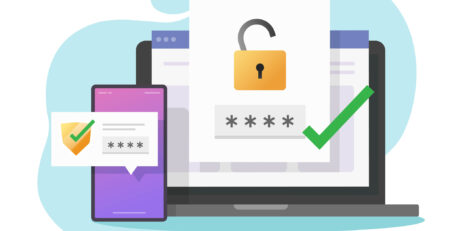Tips for Securing Data in Cloud Storage Services
In today’s digital age, cloud storage services have become an essential tool for businesses of all sizes. They offer flexibility, scalability, and cost-effectiveness, making them an attractive option for small businesses. However, with the convenience of cloud storage comes the critical responsibility of ensuring data security. Here are some essential tips for securing your data in cloud storage services.
1. Choose a Reputable Cloud Service Provider
The first step in securing your data is selecting a reputable cloud service provider. Look for providers with a strong track record in security, compliance certifications (such as ISO 27001 or SOC 2), and robust data protection policies. Research customer reviews and industry reports to ensure the provider has a solid reputation.
2. Implement Strong Access Controls
Access control is crucial in preventing unauthorized access to your data. Use strong, unique passwords for all accounts and enable multi-factor authentication (MFA) wherever possible. MFA adds an extra layer of security by requiring users to provide two or more verification factors to gain access.
3. Encrypt Your Data
Encryption is one of the most effective ways to protect your data. Ensure that your cloud service provider offers encryption for data both at rest and in transit. Additionally, consider using your own encryption tools to encrypt sensitive data before uploading it to the cloud. This way, even if the data is intercepted, it remains unreadable without the decryption key.
4. Regularly Update and Patch Systems
Keeping your systems and applications up to date is vital for security. Regularly apply patches and updates to fix vulnerabilities that could be exploited by attackers. This includes not only your cloud storage service but also any software or applications that interact with it.
5. Backup Your Data
While cloud storage is generally reliable, it’s essential to have a backup plan in case of data loss or corruption. Regularly back up your data to a separate location, such as an on-premises server or another cloud service. This ensures that you can quickly restore your data in the event of an emergency.
6. Monitor and Audit Access
Regularly monitoring and auditing access to your cloud storage can help detect and respond to suspicious activities. Set up alerts for unusual login attempts or data access patterns. Review access logs periodically to ensure that only authorized personnel are accessing your data.
7. Educate Your Employees
Human error is one of the leading causes of data breaches. Educate your employees about the importance of data security and best practices for using cloud storage services. Conduct regular training sessions to keep them informed about the latest security threats and how to avoid them.
8. Implement Data Loss Prevention (DLP) Solutions
Data Loss Prevention (DLP) solutions can help protect sensitive data from being accidentally or maliciously shared. These tools can monitor and control data transfers, ensuring that sensitive information does not leave your organization without proper authorization.
9. Use Secure APIs
If your business relies on APIs to interact with cloud storage services, ensure that they are secure. Use secure coding practices, regularly update API keys, and implement rate limiting to prevent abuse. Additionally, consider using API gateways to add an extra layer of security.
10. Review and Update Security Policies Regularly
Finally, regularly review and update your security policies to keep up with evolving threats and best practices. This includes revisiting your access controls, encryption methods, and incident response plans. Staying proactive in your security efforts can help mitigate risks and protect your data.
Securing data in cloud storage services is a continuous process that requires vigilance and proactive measures. By following these tips, small businesses can significantly reduce the risk of data breaches and ensure that their sensitive information remains protected. Remember, the key to effective data security is a combination of robust technology, strong policies, and ongoing education.











Leave a Reply